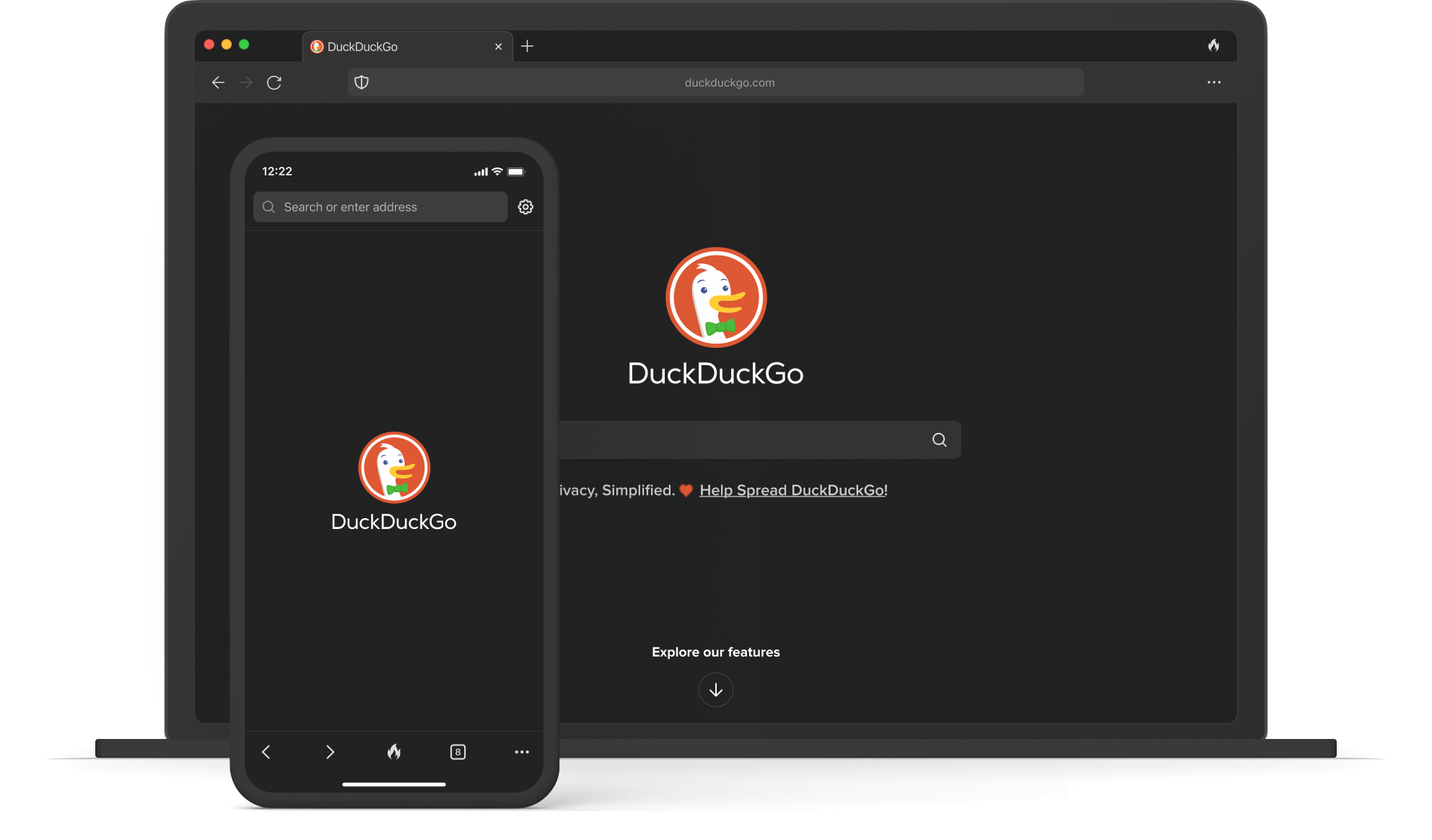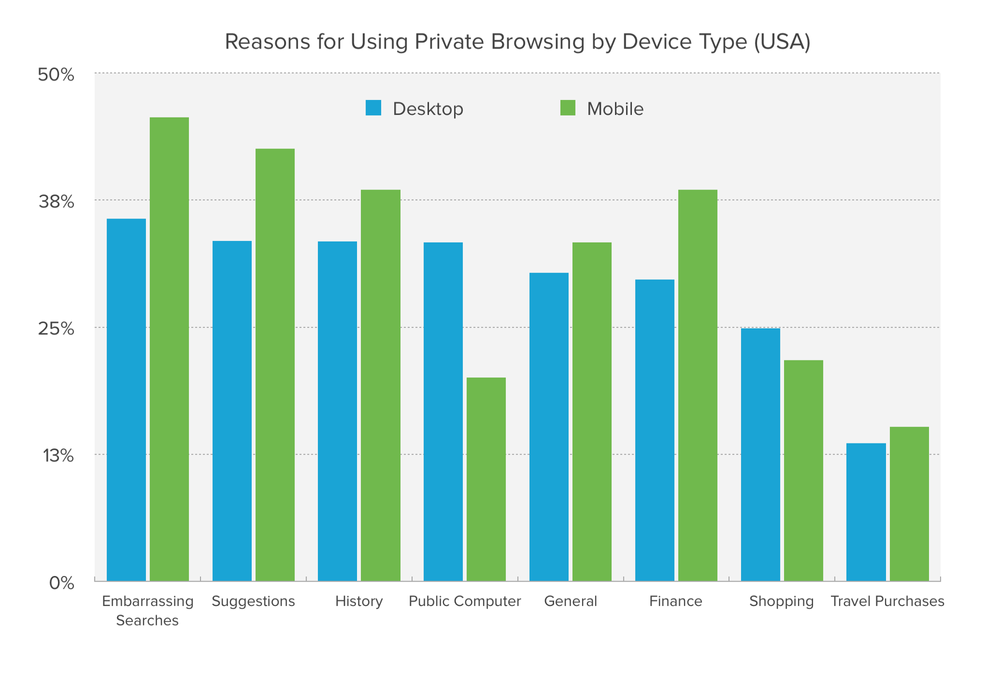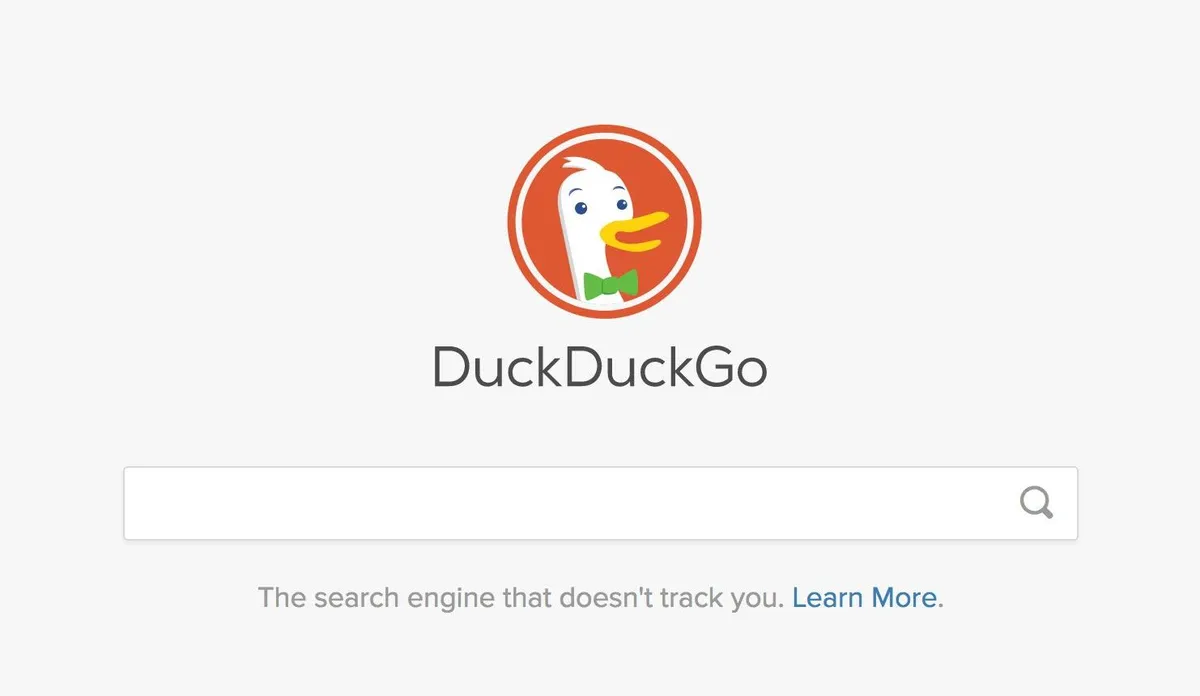DuckDuckGo Search: A Privacy-First Alternative to Big-Tech Engines
1. What Is It?
DuckDuckGo (DDG) is a privacy-focused search engine promising minimal user tracking and no personalized search profiles. Founded in 2008, DuckDuckGo aggregates results from multiple sources—including Bing, its own web crawler (the DuckDuckBot), and other partners—to deliver relevant answers without storing personal information. Featuring a clean, straightforward interface and built-in privacy features, it positions itself as a pro-privacy alternative to Google, Bing, or Yahoo.
Which Problem Does It Solve? Many popular search engines collect extensive user data to refine ad targeting or personalize results. DuckDuckGo counters this by avoiding user profiling and not tying queries to unique accounts. For MyDigitalFortress readers wary of data retention or pervasive tracking, DuckDuckGo offers a privacy-friendly search interface without sacrificing basic query relevance.

2. Technical Foundations
Sources & Aggregation
DuckDuckGo combines web data from various sources, including Microsoft Bing, DuckDuckBot crawls, and over 400 specialized services (e.g., Wikipedia, Stack Exchange). It uses proprietary ranking signals that avoid creating unique user profiles, thus forgoing location- or search-history-based personalization.
Zero Tracking & Ad Model
DuckDuckGo displays contextual ads based on query keywords, not user profiling or past activity. The platform claims to store no personal data—thus no search history is retained, or sold to advertisers. While not fully open-source, DuckDuckGo’s approach emphasizes anonymized usage and privacy advocacy . From a MyDigitalFortress perspective, it’s significantly less invasive than mainstream engines, though some queries still rely partially on Bing’s index or other external data.

3. Who Is It For?
DuckDuckGo attracts:
- Privacy Advocates: Individuals who dislike big-tech data mining or personalized ads.
- Simplicity Seekers: Users wanting a clean, uncluttered interface with minimal features beyond standard web search.
- Alternate Search Loyalists: Those wanting to diversify from Google or rely less on Microsoft-powered solutions (though partial Bing indexing remains).
- Casual Web Surfers Concerned About Profiling: DuckDuckGo can serve as a default engine for daily queries without a sign-in or user tracking overhead.
Though it lacks certain advanced features (like Google’s integrated ecosystem or Bing’s robust image/video filters), MyDigitalFortress readers often appreciate DuckDuckGo’s reduced tracking and minimalist approach to data usage.
4. Use Cases & Real-World Examples
- Daily Anonymous Searching: Privacy-first users default all queries to DuckDuckGo, avoiding search-based profiling or retargeted ads across the web.
- Private Browsing Integration: Pairing DuckDuckGo with Tor Browser or Brave for a less traceable routine, limiting how ad networks track cross-site behaviors.
-
Bang Searches: DuckDuckGo’s unique
bang syntax
(“
!wiki,” “!yt,” etc.) quickly sends queries to third-party sites (Wikipedia, YouTube, Amazon) without manually visiting them first. - Testing Alternative SERPs: Marketers or SEO specialists cross-check how DuckDuckGo ranks certain pages vs. Google or Bing, gleaning possible differences in coverage or indexing.
5. Pros & Cons
Pros
- Privacy-Forward Stance: No unique user profiles, minimal data retention, fewer trackers.
- Simple, Ad-Lite Interface: Generally fewer ads (only contextual) than big-tech engines.
- Bang Feature for Quick Navigation: Speeds up searching on popular sites or internal pages.
- Offline & Niche Community Support: Gaining traction in privacy circles with consistent enhancements to user privacy controls.
Cons
- Partial Reliance on Bing & Others: Not entirely independent; still depends on third-party indexes for many queries.
- Less Comprehensive Features: Missing certain specialized search verticals (e.g., advanced image search, universal local results) found on Google or Bing.
- Relevance Gaps for Obscure Queries: Some niche topics yield fewer results or less depth, requiring fallback to mainstream engines.
- Not Open-Source: While pro-privacy, DuckDuckGo’s backend isn’t fully open-sourced, limiting transparent auditing of search logic.
6. Getting Started
Keen to try DuckDuckGo? Here’s a simple approach:
- Visit DuckDuckGo.com: Use the main site or set it as your browser’s default search engine via settings in Chrome, Firefox, Brave, or Safari.
- Check Out Privacy Settings: DuckDuckGo’s settings page lets you modify theme, region, or safe search toggles.
-
Try Bangs: Type
!w queryfor Wikipedia or!ytfor YouTube to instantly jump to results on other sites. - Compare Queries: If uncertain about coverage or obscure topics, see how DuckDuckGo results differ from Google/Bing to gauge completeness.
- Pair with a Privacy Browser (Optional): Combining DuckDuckGo with Tor or Brave can further minimize cross-site tracking or IP-based profiling.
7. Conclusion & Next Steps
DuckDuckGo stands as a leading privacy-first search engine, rejecting personalized profiling and prioritizing user anonymity. While not entirely independent—some index data is sourced from Bing and other APIs—it still provides a refreshing break from big-tech’s deep analytics pipelines, resonating with MyDigitalFortress principles of data autonomy.
For day-to-day queries, DuckDuckGo often suffices, though more specialized or local searches may be less robust. Nonetheless, for those seeking to reduce data footprints and bypass aggressive personalization, switching to DuckDuckGo can be a valuable step.
Next steps? Use DuckDuckGo for a test week, compare queries with mainstream engines, and consider the advantages (less ad targeting, simpler interface) vs. occasional coverage gaps. If you appreciate privacy preservation and a clutter-free approach, DuckDuckGo may find a permanent home in your browser—serving as a core piece of your personal digital fortress.





